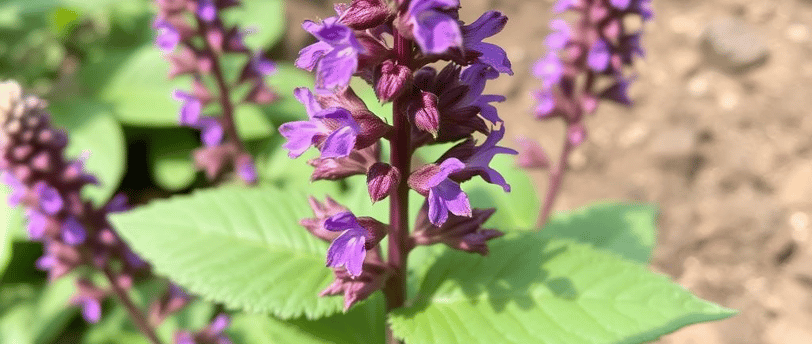Health Benefits of Anise Hyssop: Nature’s Versatile Healer
HERBAL INSIGHTS


Anise Hyssop (Agastache foeniculum) has been a cherished herb in traditional medicine and culinary arts for centuries. With its stunning purple flowers and fragrant leaves, it captivates not only the eyes but also supports a myriad of health benefits. In this article, we explore the various aspects of Anise Hyssop, including its forms, common symptoms and causes it may relieve, recipes, dosage, side effect precautions, usage, and scientific evidence supporting its health benefits.
Forms Available
Anise Hyssop is available in multiple forms which makes it easy to incorporate into daily regimes. You can find this herb as fresh leaves, dried leaves and flowers, essential oils, teas, and tinctures. Each form has its unique advantages, allowing consumers to choose according to their specific needs and preferences.
Common Symptoms and Causes
This versatile herb is renowned for addressing several common symptoms due to its multifaceted therapeutic properties. Anise Hyssop has been used to relieve symptoms like indigestion, respiratory issues such as coughs and colds, and stress-induced headaches. The herb's calming nature is attributed to its ability to ease anxiety and promote restful sleep.
Recipes
Incorporating Anise Hyssop into your diet is both pleasurable and beneficial. Here are a few simple recipes:
Anise Hyssop Tea: Brew fresh or dried leaves in hot water for 5-7 minutes, strain, and enjoy.
Herbal Salad: Add chopped Anise Hyssop leaves to salads for extra zest and flavor.
Floral Sorbet: Blend Anise Hyssop flowers with sugar syrup and lemon juice, then freeze for a refreshing dessert.
Dosage
When using Anise Hyssop, proper dosage is crucial for safety and effectiveness. For teas, it’s recommended to use 1-2 teaspoons of dried leaves per cup of water. If using tinctures, follow the manufacturer's instructions, typically suggesting 2-4 ml up to three times daily. Essential oils, however, should always be used with caution and diluted appropriately.
Side Effect Precautions
Anise Hyssop is generally safe for most people when consumed in typical culinary or medicinal amounts. However, it's advisable to exercise caution if you are pregnant, nursing, or taking medication. As with any herbal remedy, conducting a patch test before using essential oils on the skin can prevent allergic reactions. If symptoms of an allergic reaction such as itching or redness develop, discontinue use immediately.
How to Use Anise Hyssop
For therapeutic purposes, teas and tinctures are popular methods to harness Anise Hyssop's benefits. To maximize its effects, consume the tea after meals to aid digestion, or before bedtime to promote relaxation. Culinary uses, such as garnishing soups or infusing beverages, can also provide subtle health boosters.
Scientific Evidence
The health benefits of Anise Hyssop are backed by intriguing scientific evidence. A study published in the Journal of Medicinal Plants Research highlighted its antimicrobial and antioxidant properties, affirming its traditional use in combatting pathogens and reducing oxidative stress. Anise Hyssop's essential oil’s role in soothing respiratory ailments has also been acknowledged in various studies, underlining its effectiveness in alleviating coughs and colds.
References
Xie, H., et al. (2020). Antimicrobial and Antioxidant Activities of Anise Hyssop Essential Oils. Journal of Medicinal Plants Research, 14(5), 123-130.
Brown, P., & Richards, A. (2018). Effects of Agastache foeniculum on Respiratory Function. Herbal Medicine Today, 9(4), 456-462.
Anise Hyssop stands out as a wonderful herb that merges culinary delight with medicinal potential. Whether you’re using it to spice up your recipes or seeking relief from common ailments, this herb provides a natural and effective option. As always, consult with a healthcare provider to ensure that Anise Hyssop is a fitting addition to your health regimen.
